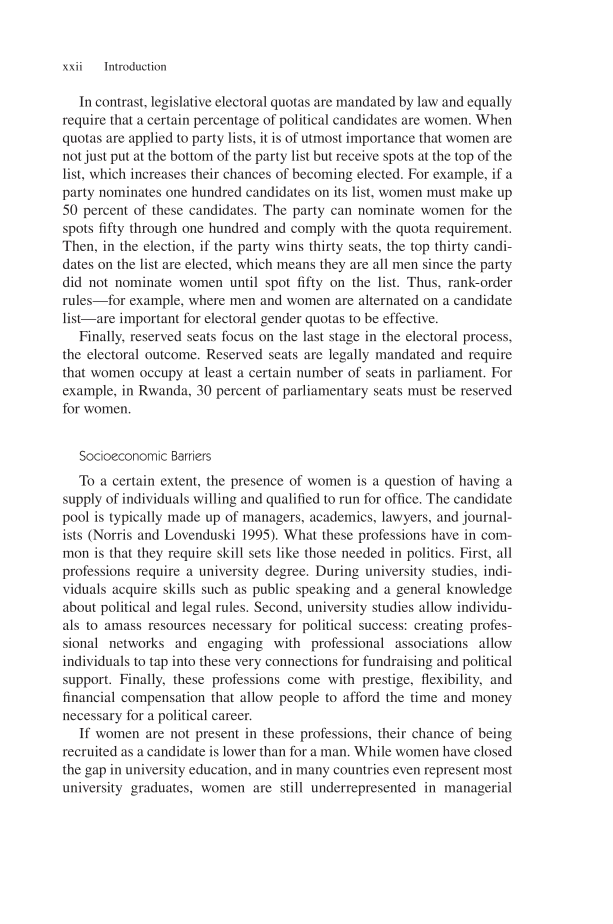xxii Introduction In contrast, legislative electoral quotas are mandated by law and equally require that a certain percentage of political candidates are women. When quotas are applied to party lists, it is of utmost importance that women are not just put at the bottom of the party list but receive spots at the top of the list, which increases their chances of becoming elected. For example, if a party nominates one hundred candidates on its list, women must make up 50 percent of these candidates. The party can nominate women for the spots fifty through one hundred and comply with the quota requirement. Then, in the election, if the party wins thirty seats, the top thirty candi- dates on the list are elected, which means they are all men since the party did not nominate women until spot fifty on the list. Thus, rank-order rules—for example, where men and women are alternated on a candidate list—are important for electoral gender quotas to be effective. Finally, reserved seats focus on the last stage in the electoral process, the electoral outcome. Reserved seats are legally mandated and require that women occupy at least a certain number of seats in parliament. For example, in Rwanda, 30 percent of parliamentary seats must be reserved for women. Socioeconomic Barriers To a certain extent, the presence of women is a question of having a supply of individuals willing and qualified to run for office. The candidate pool is typically made up of managers, academics, lawyers, and journal- ists (Norris and Lovenduski 1995). What these professions have in com- mon is that they require skill sets like those needed in politics. First, all professions require a university degree. During university studies, indi- viduals acquire skills such as public speaking and a general knowledge about political and legal rules. Second, university studies allow individu- als to amass resources necessary for political success: creating profes- sional networks and engaging with professional associations allow individuals to tap into these very connections for fundraising and political support. Finally, these professions come with prestige, flexibility, and financial compensation that allow people to afford the time and money necessary for a political career. If women are not present in these professions, their chance of being recruited as a candidate is lower than for a man. While women have closed the gap in university education, and in many countries even represent most university graduates, women are still underrepresented in managerial
Document Details My Account Print multiple pages
Print
You have printed 0 times in the last 24 hours.
Your print count will reset on at .
You may print 0 more time(s) before then.
You may print a maximum of 0 pages at a time.





































































































































































































































































































































